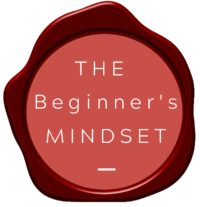
Everyone’s day has 24 hours. How you spend your 24 hours dictates not only our productivity, effectiveness but also the overall quality of your life. Today, I will share five of my favourite strategies that help making my everyday more productive and for me go a long way in getting a lot of things done and in the long run reducing stress. Let’s dive right in.
Spend 10 minutes every night planning your next day:
I love this strategy so much that some time ago I wrote a complete blog post dedicated to this alone. I called it ‘My (counter-intuitive) hack to an effective morning’. I firmly believe that if you are spending the first few moments of your morning planning your day, you are already late and you should plan the previous night. Reserve 10 minutes every night to just jot down a rough blue print of how your wish to spend the next morning at the least if not the entire day. That way, you would wake up with focus that comes only from knowing what you are going to do.
Have one and only one place to track your tasks, to-dos, etc:
Whatever your preference, be it your favourite note-taking app on your phone, or a physical notebook or any other medium, doesn’t matter, just make sure there is only place where you store your tasks, to-dos, etc. What usually happens if you have multiple ledgers to maintain your tasks and to-dos, invariably, things will fall through the cracks. Something on your physical note-pad might get done and you might forget staying on top of what you have added to your note taking app on your phone or computer. There is one caveat to this. This single tracking place is in addition to your favourite calendar app.
End every day with a wrap-up exercise on the notes collected through the day:
Through a busy working day, we make notes, collection actionable items and so much more. Then, we quickly move on to the next task and do not get the time to action the items that we have made a note of. And think about this; everyday is going to be as busy so if you didn’t get the time today, what makes you believe you are going to get any time any other day? So, what helps is to “close” the notes for the day after close of business everyday. Very similar to closing of the accounts at the end of a financial year but for your tasks and done daily. Go through your notes from the day and find one place for each item: if they have been actioned, strike them out (and enjoy the feeling), if they need to be carried forward, copy them over to the next day’s entries, if they can be actioned, action them, if they need to be actioned on a following day, block time in your calendar. In short, find a single parking place for all your tasks so that you begin your next day with a clean slate and there is less chance of anything slipping through the cracks.
If it is a task that just takes a couple of minutes, do it now:
Let’s say you need to ask a question to one of your colleagues, or you need to wish someone a happy birthday or you just need to make a bill payment. These tasks take more time to keep track of that actually getting them done. So do them as soon as you encounter them during your daily closing exercise. If something needs to be done at a later point, see if you can schedule it; such features are being offered by most apps, you can schedule messages, schedule emails and even payments. Once you schedule it in, you can strike the task off and that way it does not have to occupy any space in your mind and in your note taking app.
Use habit stacking to get “related” tasks done:
Habit stacking is a concept that I got introduced to in James Clear’s book Atomic Habits. Habit stacking is a way of arranging your tasks in a sequential and connected way so that they get done without us exercising active choice to do them or not or when to do them. For example, if you own a car, you need to ensure that the air pressure in the tyres is as prescribed. Most fuel pumps have a pump for you to use. An effective way of stacking could be to check the air pressure in your car’s tyres every time you fill up the tank. That way you don’t have to stress about remembering to do it and gets done along with another regular task. You might have noticed people who are prescribed medicines to be taken after meals usually have the medicines placed on the dining table so that they are reminded to have them the moment they finish their meals. This is one of the oldest form of habit stacking that I see very commonly.
Bonus – plan your weekend on Friday:
In my mind this is a very logical Segway from the very first strategy that I mentioned. This topic does deserve a complete blog of it’s own but for now, it can be treated as an extrapolation of the “plan your day the previous night”
Do let me know how you liked the ideas discussed here. Are there any strategies that work well for you? I would love to learn about them as the pursuit of becoming more effective, in my opinion, is an endless one.


